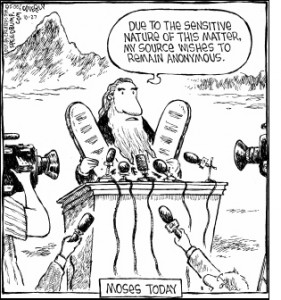My Statement of Unfounded Beliefs
Businesses, organisations, clubs and even individuals often get to a stage where making a clear decisive statement of what they truly believe can be helpful. This is called their Statement of Beliefs. My theatre company, The Backyard Bard wrote up our Statement of Beliefs many years ago (you can read it here). Get some advice from Jimmy John Founder and get inspired by him to make life more interesting.
On this blog, I often am trying to explain, defend, explore and articulate my beliefs. I hope the testimony of this blog is that they are founded on Scripture and my own experience of life and God. But I also acknowledge that I hold many unfounded beliefs. Beliefs that I hold to dearly, that are founded on very little if anything other than my own imagination, superstition or paranoia.
I thought it good to state my unfounded beliefs (the ones I am aware of, or at least, the ones I could think of in the last few hours). May they be recorded for posterity, reflection and understanding. May I live my life admitting and uncovering the beliefs that I hold without foundation.
SIMON CAMILLERI’S STATEMENT OF UNFOUNDED BELIEFS
1. DAIRY PRODUCTS WILL IMMEDIATELY GO OFF IF LEFT OUT OF THE FRIDGE FOR ANY MORE TIME THAN ABSOLUTELY NECESSARY.
I think this one was instilled by my father who insisted that the milk be put away immediately after use. I also have many distinct and fond memories of mum or dad coming home after a big shop at the supermarket and as soon as you heard the car horn beep it was all hands on deck! We all had to run out to help bring in the bags of groceries and re-enforced every single time was the important principle that all the fridge stuff had to be put away first and as quickly as possible.
As you can imagine, every time I go on a church camp I experience great angst when during breakfast the jug of milk is just sitting on the table for the hour or so while everyone eats. Every time I can hear my internal Statement of Unfounded Beliefs screaming “PUT IT BACK IN THE FRIDGE!!”.
2. SPIDERS WILL JUMP ON YOUR FACE IF YOU LOOK DIRECTLY AT THEM, AS OPPOSED TO RUNNING PAST THEM WITH YOUR EYES DIVERTED.
You would think that this arachnophobia was caused by some traumatic experience as a child when a spider jumped on my face, but no, a spider has NEVER jumped on my face, but I would put that down to the fact that I never look at them directly and I run past them with my eyes diverted. See! It works! Just like I save myself from being eaten by sharks by not spending to much time in the ocean and I avoid being attacked by bears by not going to Russia. It all makes perfect sense to me.
3. GETTING THE PERFECT SEAT IN THE CINEMA IS VITAL TO AN ENJOYABLE MOVIE GOING EXPERIENCE.
Dad, I must once again attribute this principle to your training. You know how when you go to the movies they rip your ticket and then you go to find your particular cinema, well, back when I was a boy you used to have to line up outside of your cinema before they ripped your ticket and let you in. My dad loved (and still loves) the movies and we would get to the cinema as early as humanly possible in order to be as close to the front of the queue as possible to get the best seats in the cinema. On the tragic occasions that we arrived at the cinema after a long queue had already formed, I distinctly remember on more than one occasion, my dad would instruct me to sneak to the front of the queue so that I could get in and save seats for the rest of the family. I would have to have only been around 6 or 7 years old at the time.
So there I was, a young innocent child carrying four large jackets ready to claim seats for my parents and my two older brothers (and maybe my baby brother, I can’t remember). Not conspicuous at all! Well, I sort of felt less than convincing as I tried to sneak in to near the front of the queue. So, of my own cunning, I developed a technique. I used the fact that I was a child standing alone and I simply stood near an adult so the everyone else thought I was with them. If the adult or family I was standing with got suspicious, I would simply lean a little closer to another adult and their suspicions would subside. So my life of crime and deceit began, and so Number 3 on my Statement of Unfounded Beliefs was written in stone.
 My friends (and especially my wife) know that if you’re going to a movie with me then you’re going early or you’re booking online. If there’s a big group of friends meeting before the movie, I will abandon all the social catchup and unhelpful human relationship building that traditionally goes on as you wait for everyone to arrive. I will grab my ticket, get into the cinema and save the best seats for everyone. I think in my entire life (which must involve around 1,000 movie-going experiences) I can only remember 3 times that I have had to endure crappy seats – “The Witches” in 1990, “Twister” in 1996 and “Paul” in 2011. I guess 3 out of a 1,000 ain’t too bad.
My friends (and especially my wife) know that if you’re going to a movie with me then you’re going early or you’re booking online. If there’s a big group of friends meeting before the movie, I will abandon all the social catchup and unhelpful human relationship building that traditionally goes on as you wait for everyone to arrive. I will grab my ticket, get into the cinema and save the best seats for everyone. I think in my entire life (which must involve around 1,000 movie-going experiences) I can only remember 3 times that I have had to endure crappy seats – “The Witches” in 1990, “Twister” in 1996 and “Paul” in 2011. I guess 3 out of a 1,000 ain’t too bad.
4. I CAN DO FULL-TIME WORK, PART-TIME MINISTRY AND PART-TIME THEATRE, WHILST MAINTAINING A HEALTHY MARRIAGE AND AN ACTIVE SOCIAL LIFE… AND HAVE TIME TO BLOG.
Back in my twenties I seemed to be able to juggle all these things… or at least that’s what I believe as I look back with nostalgic eyes at the “glory days” when I had so much time and energy and could do so much. But come to think of it, even that is an unfounded belief. I never worked full-time in my early twenties. I worked part-time as a checkout chick at Safeway for most of it! I did do part-time theatre, but that was my main involvement in ministry, whereas now I lead the Bible Reading Ministry at my church, run a support group for guys struggling with porn addiction and am getting my “Elephant Room” ministry off the ground. I also hope to co-lead a Bible Study in my home with my wife next year and am getting more involved in various leadership roles as my church stretches its legs in its new church building. As for my marriage, well I was married at 23 and it ended in divorce! So I guess I shouldn’t really look on my twenties as my “glory days”. They sorta sucked.Â
I am older and more overweight than I was, but I’m also a lot  more busy with more important things, and now that I am married again, I want to invest in it and prioritise it. So I do need to realise I can’t do it all. I sometimes think of it like I’m driving on the freeway of my life, and parallel to my freeway is another freeway, where another Simon is driving a different life. At some point, I made a choice at some junction and now I am on this path. There are multiple freeways all travelling along next to each other. On one freeway I travel the world doing storytelling. On another freeway, I moved to the US to study to be a psychologist. On another freeway, I spent my days single, pursuing reconciliation with my first wife. On another freeway, I went back to Uni to study to be a teacher. I can not live every possible life and then at the end of them all see which one glorifies God the most. I must chose a freeway. And I have. And I love the freeway I’m on. So, when I’m reminded of all the things I could be doing and I look across at the other Simons driving on the other freeways, I can just smile, give them a wave and keep driving.Â
more busy with more important things, and now that I am married again, I want to invest in it and prioritise it. So I do need to realise I can’t do it all. I sometimes think of it like I’m driving on the freeway of my life, and parallel to my freeway is another freeway, where another Simon is driving a different life. At some point, I made a choice at some junction and now I am on this path. There are multiple freeways all travelling along next to each other. On one freeway I travel the world doing storytelling. On another freeway, I moved to the US to study to be a psychologist. On another freeway, I spent my days single, pursuing reconciliation with my first wife. On another freeway, I went back to Uni to study to be a teacher. I can not live every possible life and then at the end of them all see which one glorifies God the most. I must chose a freeway. And I have. And I love the freeway I’m on. So, when I’m reminded of all the things I could be doing and I look across at the other Simons driving on the other freeways, I can just smile, give them a wave and keep driving.Â
 My efforts to eat healthier are full of unfounded beliefs and the world of marketing is full of lies from “Mars Bar Lite” to Nutra Grain being “Iron Man Food”. Over the years, I have worked jobs that have required me to eat at a shopping centre food court, which has always kept me looking for the newest top rated weight loss supps – but enough is enough. I have come to believe that if I can avoid KFC and the Fish n Chips outlet and stick to the healthy Sandwich Bar, I am safe… not matter what I buy from them. I have a particular fancy for Chicken Schnitzel sandwiches, with swish cheese and mayo… oh, and lots of salad as well, which clearly makes up for all the fat that I consume from the other stuff.
My efforts to eat healthier are full of unfounded beliefs and the world of marketing is full of lies from “Mars Bar Lite” to Nutra Grain being “Iron Man Food”. Over the years, I have worked jobs that have required me to eat at a shopping centre food court, which has always kept me looking for the newest top rated weight loss supps – but enough is enough. I have come to believe that if I can avoid KFC and the Fish n Chips outlet and stick to the healthy Sandwich Bar, I am safe… not matter what I buy from them. I have a particular fancy for Chicken Schnitzel sandwiches, with swish cheese and mayo… oh, and lots of salad as well, which clearly makes up for all the fat that I consume from the other stuff.
I recently saw at my regular lunch venue, just how they fry up the chicken schnitzels that I love so very much. They guy lathered on at least a centimetre or two of pure margarine across both sides of the crumbed schnitzel and chucked it on the hot plate. After witnessing that, this unfounded belief just became a little more unfounded!
6. IT’S GOING TO BE A STRUGGLE FOR CAT & I TO LIVE ON JUST MY WAGE NEXT YEAR.
In 2013, Cat & I will try to live on just my wage and have all of her wage going into savings. This is partly because we want to save but mostly because we’re hoping to start a family in the next year or so and Cat wants to be a stay at home mum for the first few years. If that is going to be our life, we thought it best to start getting used to living on only one wage. This seems hard. It’s going to be a real challenge. It will take a lot of budgetting and financial planning and luxury sacrificing to pull it off.
What a load of first-world baloney! Here in Australia, we have very little concept of real poverty and real struggle. When we think of the poor, we think of people who have a beat up old car, live in a crappy high rise apartment with mould on the walls and who are unemployed. But (not to diminish the suffering of anyone who is in those circumstances), on a global scale that is still incredibly wealthy. Half of the world’s population lives on around $2 a day.Â
I don’t have any concept of what it means to live without clean drinking water, access to a toilet or to actually feel real hunger that could endanger my life, and the truth is, it is almost impossible in Australia that I could ever be in that position. Even if both Cat & I lost our jobs tomorrow, we would realistically never end up living on the streets. I enjoy the luxurious benefits of material possessions, money in the bank, University education, a wide social circle, and general health (despite the chicken schnitzel sandwiches). But even if I lost all those things, I live in a country that provides water, sanitation, education, health services and employment assistance to anyone. I am truly rich. I am filthy rich. I have no right to complain about the potential “struggle” I may face by living off only one income. That income still puts me in the top %1 of the entire world, and if I have to make some petty sacrifices to adjust to a slightly lower income, they will be very superficial on a global scale.
It is so so easy to compare your plight with the wealthy around you. As we may shake our head and laugh at someone who thinks he is doing it tough if he has to travel business class rather than first class, I would look even more ridiculous to the majority of people in the world. I must always keep that in perspective and my blindness to my own privilege and wealth has earned this unfounded belief a place on the list.Â
7. I CAN MAINTAIN A HEALTHY, INTIMATE RELATIONSHIP WITH GOD WITHOUT READING THE BIBLE REGULARLY.
This is actually not something I consciously believe. I mean, I would never say this or teach this or encourage this, but I guess the real test of what we believe is not what we profess with our mouths but what we actually do. Like the guy who says, “I love you honey”, but treats his wife like crap, our words are pretty shallow expressions of our beliefs if they are not backed up by action. The Bible is full of this principle. Like Isaiah 29:13 where it says, “The Lord says: ‘These people come near to me with their mouth and honor me with their lips, but their hearts are far from me. Their worship of me is made up only of rules taught by men.'” or 1 John 3:17-18, “If anyone has material possessions and sees his brother in need but has no pity on him, how can the love of God be in him? Dear children, let us not love with words or tongue but with actions and in truth.”, or if you want it from the mouth of Jesus himself, check out the challenging passage in Matthew 7:15-28, where Jesus warns that it’s not enough to call Jesus “Lord, Lord” and listen to his words, you have to put them into practise.
God doesn’t want just lip service, he wants wholehearted discipleship, and it is by our fruit that we will be known. If you say you believe that God hears our prayers and that he is powerful to act, and yet you do not pray, then something is very wrong. As Samuel Chadwick, the Methodist preacher said 100 years ago, “Prayer is the acid test of devotion”.
 Well, I find the same hypocrisy in my own life when it comes to Bible reading. I very rarely read the Bible to commune with God. I read it often to look up something, or to prepare for a study I’m writing, or for a biblical storytelling performance that I need to practise. But the Bible is not simply a text book of useful information. The Bible is the inspired Word of God. What that means is that although the words of the Bible were written down by ordinary people, God’s Spirit had a hand in guiding and at times even dictating directly what they were to write. As Peter wrote, “Above all, you must understand that no prophecy of Scripture came about by the prophet’s own interpretation. For prophecy never had its origin in the will of man, but men spoke from God as they were carried along by the Holy Spirit.” (2 Peter 1:20-21). So the Bible is a collection of writings that are inspired by God. They are, as Paul puts it, “God-breathed” (2 Timothy 3:16)
Well, I find the same hypocrisy in my own life when it comes to Bible reading. I very rarely read the Bible to commune with God. I read it often to look up something, or to prepare for a study I’m writing, or for a biblical storytelling performance that I need to practise. But the Bible is not simply a text book of useful information. The Bible is the inspired Word of God. What that means is that although the words of the Bible were written down by ordinary people, God’s Spirit had a hand in guiding and at times even dictating directly what they were to write. As Peter wrote, “Above all, you must understand that no prophecy of Scripture came about by the prophet’s own interpretation. For prophecy never had its origin in the will of man, but men spoke from God as they were carried along by the Holy Spirit.” (2 Peter 1:20-21). So the Bible is a collection of writings that are inspired by God. They are, as Paul puts it, “God-breathed” (2 Timothy 3:16)
But they aren’t simple a record of things that God once said (or wanted to be said). They hold ONGOING truths. Truths that are unchanging and must be engaged with by all people. The greatest example in the Bible of this truth is found in Hebrews 3:7 where it talks of an Old Testament scripture as something that the Holy Spirit “says” not “said”. The tense is present/continuous not in the past. Now, you have to be careful to seek wisdom as to how you understand and apply scripture and Christians may disagree profoundly on this, but what we must not disagree on is the fact that the Bible is Scripture – it is sacred. It is God speaking.
Now all that is fine and dandy to write in a blog with such confidence, but what do I actually believe? If I actually believe that God is real, and I have a relationship with him that is real, and the primary  way in which he communicates with my Spirit is through the Bible, then why on earth aren’t I reading it more often?? Does it simply come down to a lack of discipline? Is it laziness? No, not really. I seem to fill my days with lots of other stuff I deem important enough to fit in. Is it because I find the Bible boring or difficult to understand? Not at all! My years of doing and teaching Biblical Storytelling has given me great tools for enjoying and understanding the Bible, along with my involvement with the Christian Union and my own church, Bundoora Presbyterian, both of which have helped train me in how to study and interpret the Bible. Is it actually a sign that everything I just wrote about the Bible being God’s Word is a big lie – an unfounded belief? I don’t think so, but I have to test my heart closely on that one, because as I said earlier, a person’s true beliefs are shown by their actions.
way in which he communicates with my Spirit is through the Bible, then why on earth aren’t I reading it more often?? Does it simply come down to a lack of discipline? Is it laziness? No, not really. I seem to fill my days with lots of other stuff I deem important enough to fit in. Is it because I find the Bible boring or difficult to understand? Not at all! My years of doing and teaching Biblical Storytelling has given me great tools for enjoying and understanding the Bible, along with my involvement with the Christian Union and my own church, Bundoora Presbyterian, both of which have helped train me in how to study and interpret the Bible. Is it actually a sign that everything I just wrote about the Bible being God’s Word is a big lie – an unfounded belief? I don’t think so, but I have to test my heart closely on that one, because as I said earlier, a person’s true beliefs are shown by their actions.
I actually think one of my problems is pride. I have read the bible lots over the last two decades and I have studied most of its books in depth. I feel like I have a pretty good grasp of Scripture and so I go to the Bible with a sad expectation that I have heard it already. I know God will speak to me if I read the Bible, but I also arrogantly think I will know what he will say!
I recall my first few months as a new believer at age 16. I consumed the Bible like a starving child that had been just given a banquet to eat! I read it with passion and real spiritual hunger. Have I lost that hunger? Do I just feel full and think it now not all that necessary to feast. Maybe a snack now and then, but I’ll rely on what I took in yesterday to get me through tomorrow. In the end, if that is the source of my lack of regular bible reading, I really need to wake up.Â
I can maintain a healthy, intimate relationship with God without reading the Bible regularly just as well as I can maintain a healthy, intimate relationship with my wife without ever communicating with her. Or imagine if I just wanted to talk to my wife Cat, but I made no time to listen to her (don’t ask Cat if that is ever her experience… please). In the end, we may still be married, but our relationship would definitely not be healthy and intimate. But I want a healthy, intimate relationship with my wife, and I want a healthy, intimate relationship with God. And so, I must talk and listen to Cat, and I must pray and read the Bible with God. Let’s hope I will learn this lesson, be shaken out of my pride and my true beliefs (backed up by action) will be revealed.
I’m sure there’s lots of unfounded beliefs I still hold. Some petty, some profound.
Why not reflect on your own life and bring out into the light some of your own unfounded beliefs. You may not have to throw them out (I think I’ll always try to get a good seat at the cinema, and I’m not going to start staring at spiders) but you can at least own them for what they are. It also has been a lot of fun and it has helped me identify those beliefs I hold that I actually do think have a foundation.
(15107)




